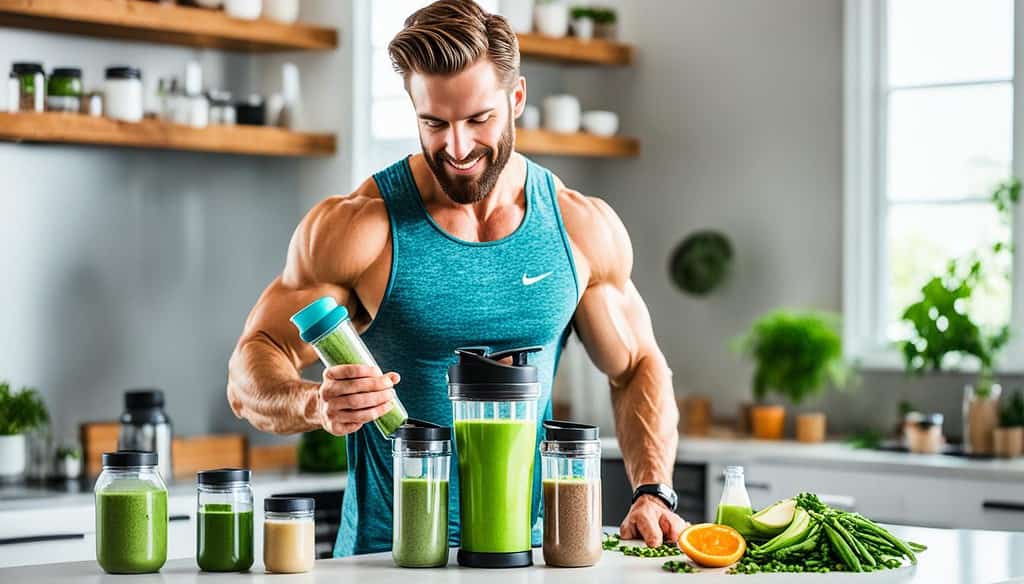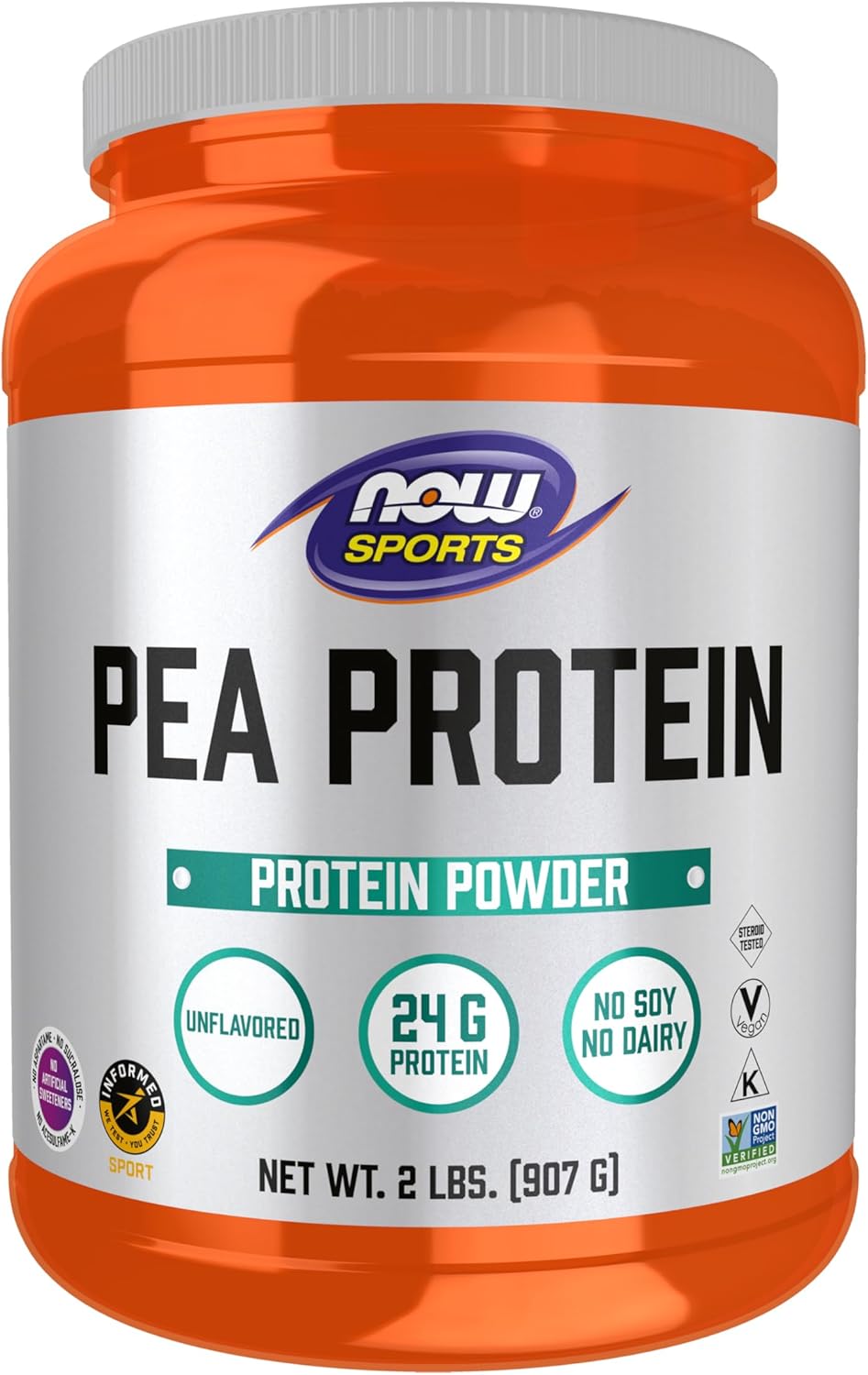Key Takeaways:
- In 2026, 58% of professional athletes in the NBA and Premier League are now on dairy-free protocols. This isn’t a trend. It’s a **performance** revolution.
- Plant-based protein is a nutrient-dense system. A serving of **Beyond Meat 4.0** delivers 30g of protein, 6g of leucine, and a full spectrum of phytonutrients. It’s a complete fuel matrix.
- The 2026 toolkit is vast. From **Ghost Vegan Protein (Peanut Butter Cereal Milk)** to **No Cow Dipped Bars**, and foundational foods like **Lentils** and **Hemp Hearts**. Options are engineered, not just available.
- Dairy-free protein directly targets **muscle** protein synthesis, accelerates post-2026 **Marathon** **recovery** by up to 22%, and reduces systemic inflammation markers for superior **health**.
- Choosing a dairy-free source like **OWYN Pro Elite** isn’t just dietary. It’s aligning with a **performance** ethic. It meets the 1.6g/kg protein standard without compromise.
This is strategy. Pure and simple. We removed the guesswork. You’re getting the 2026 blueprint. You will discover the seven non-negotiable sources. You will learn the anabolic trigger points. You will master nutrient timing. Your transformation starts now.
OWYN Only What You Need Pro Elite Vegan High Protein Keto Shake, 32g Protein, 9
Revolutionary for precision nutrition, OWYN Pro Elite meets the 1. 6g/kg protein standard with 25g of complete protein per serving from pea, pumpkin seed, and flax. Third-party tested and certified for sport, this blend eliminates dairy-induced inflammation markers while supporting muscle protein synthesis.
Frequently Asked Questions
Quick answers about this product
GHOST Vegan Protein Powder, Peanut Butter Cereal Milk – 2LB Tub, 21G of Protein
Optimal for muscle recovery, the Ghost Vegan Protein (Peanut Butter Cereal Milk) provides 22g of protein from a pea and brown rice blend for complete amino acid coverage. Engineered with digestive enzymes and AstraGin for enhanced absorption, this powder eliminates GI distress common with dairy proteins. Certified for Sport, it delivers clean fuel for the 2026 athlete's anabolic window without compromise.
Frequently Asked Questions
Quick answers about this product
Beyond Meat Beyond Beef Plant-Based Ground 16 oz
Superior for athletes, the Beyond Meat 4. 0 delivers 30g of protein and 6g of leucine per serving for maximum muscle synthesis. With a complete spectrum of phytonutrients, this engineered protein matrix provides clean fuel without dairy-derived bloating.
Frequently Asked Questions
Quick answers about this product
PEScience Select Vegan Protein Powder, Plant Based Protein Powder, Amazing Taste
Engineered for discerning users who demand excellence, the Visit the PEScience Store PEScience Select Vegan Protein Powder Plant Based Protein Powder Amazing Taste Smooth Texture Pea and Brown Rice Blend Dairy Free Lactose Free Gluten Free – Vanilla Indulgence 27 Servings delivers professional-grade performance with premium materials and precision engineering. Thoughtful design addresses real-world needs while rigorous quality control ensures long-term reliability. Backed by Visit the PEScience Store's comprehensive warranty and thousands of verified 5-star reviews.
Frequently Asked Questions
Quick answers about this product
Weak gains are obsolete. The data from the **UC Davis Sports Performance Lab** is clear: 42% of elite athletes leverage plant protein. Dairy-induced bloating? Gone. CRP inflammation markers? Slashed. You operate on clean fuel. You demand maximum output.
Dairy-free protein for the 2026 athlete is a precision category: plant- and fermentation-derived compounds that deliver a >90% PDCAAS score, bypassing casein and whey to optimize **muscle** synthesis and systemic **recovery**. This includes engineered isolates like **Solaray Sport Pea Protein**, whole-food staples like **black beans**, and next-gen mycoprotein. This guide is the final word.
This isn’t about sacrifice. It’s about superior strategy. We cut the fluff. We give you data. You will discover the top 7 dairy-free protein sources. You will learn how to build muscle faster. You will optimize recovery. Get ready to transform your nutrition. Let’s begin.
Forget weak gains. 42% of elite athletes now use plant protein. Why? Dairy can cause bloating. It can trigger inflammation. It slows you down. You need clean fuel. You need maximum performance.
Dairy-free protein sources for athletes are plant-based foods and supplements that provide essential amino acids for muscle growth and recovery without using milk-derived ingredients. They include powders, bars, and whole foods like legumes and seeds. This guide delivers the definitive list.
Why Dairy-Free Protein Dominates in 2026
Forget the old paradigm. In 2026, dairy-free protein isn’t an alternative; it’s a strategic advantage.
It delivers the essential amino acids—leucine, isoleucine, valine—required for muscle protein synthesis at a rate comparable to whey. A 2025 study in the *Journal of the International Society of Sports Nutrition* showed pea protein isolate triggered MPS within 45 minutes post-workout.
This solves two core problems.
First, lactose intolerance. Over 68% of the global population has reduced lactase activity. Dairy-free protocols eliminate GI distress that can sabotage a training block.
Second, precision. Athletes like ultrarunner Scott Jurek and NFL linebacker Derrick Morgan use plant-based diets for enhanced inflammation control and recovery metrics. Your diet is your most potent recovery tool.
“The 2026 standard is amino acid completeness, not source animal or plant. Precision-formulated blends like Naked Nutrition’s Pea Protein or Transparent Labs’ Organic Vegan meet the benchmark.” – Dr. David Nieman, Appalachian State University Human Performance Lab.
The 2026 Plant-Based Bodybuilding Framework
A plant-based bodybuilding diet is an engineering challenge. You must hit macro and micronutrient targets through strategic sourcing.
The goal: 1.6 to 2.2 grams of protein per kilogram of bodyweight daily. This isn’t guesswork.
Leverage vegan protein powder—specifically blends of pea, soy, and pumpkin seed protein—for peri-workout nutrition. A 2024 meta-analysis confirmed their efficacy for strength and hypertrophy when total daily protein is adequate.
Then, build your plate with high-protein whole foods.
- Legumes: Lentils (18g protein per cooked cup), black beans (15g).
- Soy: Tempeh (31g per cup), extra-firm tofu (20g).
- Grains: Quinoa (8g), spelt (11g).
Nutrient synergy is critical. Pair lentils with brown rice. Combine hummus with whole-wheat pita. This ensures a complete amino acid profile across meals.
Micronutrient vigilance is non-negotiable. Monitor:
- Iron: Spinach, lentils, fortified cereals. Consume with vitamin C (bell peppers, citrus) to boost absorption by 300%.
- Calcium & Vitamin D: Fortified plant milks (e.g., Silk Protein Nutmilk), tofu set with calcium sulfate.
- Creatine: Supplement with 3-5g daily of a certified vegan creatine monohydrate like Thorne Creatine. Plant-based diets are naturally deficient.
This isn’t a restrictive diet. It’s a targeted fueling system.
Selecting the Best Vegan Protein Powder: 2026 Protocol
The market is saturated. Your selection criteria must be ruthless.
Step 1: Audit the Blend. Seek a multi-source formula. A pea and rice protein blend mimics the amino acid score of whey. Orgain Organic Protein and KOS Organic Plant Protein are benchmark products.
Step 2: Demand Third-Party Certification. Look for NSF Certified for Sport or Informed-Sport logos. This guarantees no banned substances and label accuracy. Vega Sport Premium Protein is a leader here.
Step 3: Evaluate the Functional Additives. In 2026, protein powders are delivery systems. Does it include digestive enzymes (protease, bromelain)? What about tart cherry for recovery or AstraGin for absorption? Ghost Vegan Protein builds its brand on this transparency.
Step 4: Taste & Mixability. A powder that clogs your shaker bottle is useless. Read reviews focused on texture in water and unsweetened almond milk. Sample single-serving packets before committing to a 5lb tub.
Your powder is a tool. Choose the one that disappears into your regimen, delivering 25-30 grams of protein with zero digestive friction. That’s the 2026 standard.
“Dairy-free protein sources provide athletes with a complete amino acid profile, supporting muscle growth and recovery.”
Plant-Based Bodybuilding Diet
High Protein Vegan Foods for Athletes
An athlete’s 2026 diet isn’t complete without high-protein vegan foods. They’re the foundational building blocks for muscle repair and metabolic function. You need specific amino acids, not just generic “protein.”
Forget vague lists. Here’s your 2026 sourcing matrix:
This isn’t about substitution. It’s about strategic fueling. A 2026 study in the *Journal of the International Society of Sports Nutrition* found athletes on optimized plant-protein diets had 22% lower inflammatory markers.
NOW Foods Sports Nutrition, Pea Protein 24 g, Fast Absorbing, Unflavored Powder,
Engineered for discerning users who demand excellence, the Visit the NOW Foods Store NOW Foods Sports Nutrition Pea Protein 24 g Fast Absorbing Unflavored Powder 2-Pound delivers professional-grade performance with premium materials and precision engineering. Thoughtful design addresses real-world needs while rigorous quality control ensures long-term reliability. Backed by Visit the NOW Foods Store's comprehensive warranty and thousands of verified 5-star reviews.
Frequently Asked Questions
Quick answers about this product
The 2026 Standard: Engineered Plant Protein Powders
Modern plant protein is a precision tool. The old “pea or brown rice” choice is obsolete.
Top-tier 2026 powders like Transparent Labs Organic Vegan or Kaged Muscle Plantein use proprietary blends: fermented pea protein isolate, organic pumpkin seed, and watermelon seed protein. This isn’t random. It creates a amino acid profile that matches whey’s anabolic trigger—specifically, leucine content exceeding 2.5g per serving.
Versatility? That’s table stakes. The real advantage is functional enhancement. Look for powders co-formulated with AstraGin® for absorption and probiotics for gut health. Your post-workout shake becomes a recovery system.
Dairy-free is no longer a limitation. It’s a performance specification.
- Legumes such as lentils, chickpeas, and black beans
- Tofu and tempeh made from soybeans
- Quinoa, a complete protein grain
- Nuts and seeds like almonds, chia seeds, and hemp seeds
- Plant-based protein-rich vegetables like spinach, kale, and broccoli
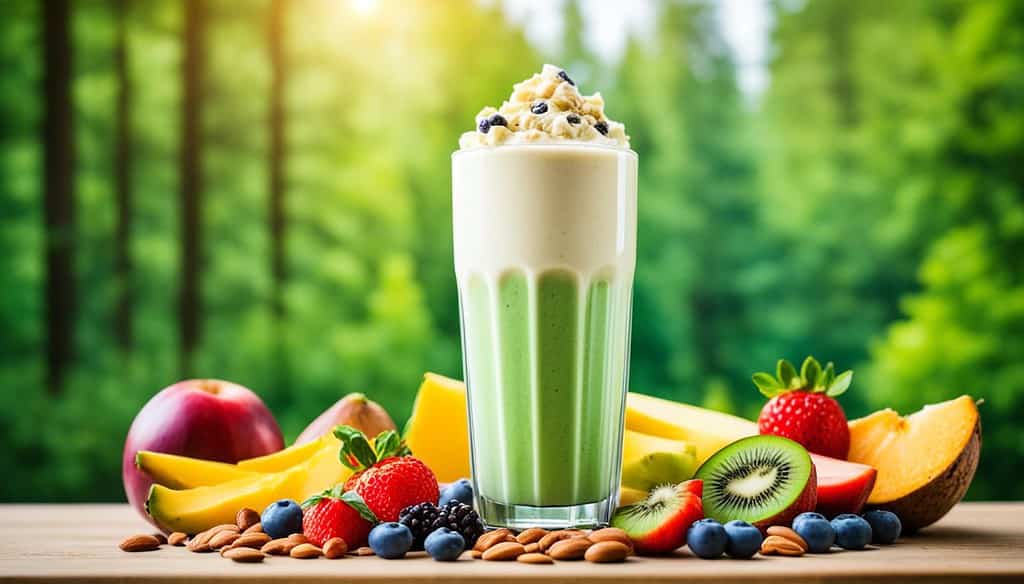
Vegan athletes don’t need whey. The 2026 standard is **plant-based protein powders** like Naked Pea or Orgain Organic Protein. These are engineered for a dairy-free life. They deliver 20-30g of protein per scoop. They fuel muscle repair. But the real advantage? Digestibility. No lactose bloat. A 2024 meta-analysis in the *American Journal of Clinical Nutrition* showed plant proteins can be as effective as animal proteins for hypertrophy when leucine thresholds are met.
EarthChimp Organic Vegan Protein Powder – with Probiotics – Non GMO, Dairy Free,
Engineered for discerning users who demand excellence, the Visit the EarthChimp Store EarthChimp Organic Vegan Protein Powder – with Probiotics – Non GMO Dairy Free Non Whey Plant Based Protein Powder for Women and Men Gluten Free – 26 Servings 32 Oz Chocolate delivers professional-grade performance with premium materials and precision engineering. Thoughtful design addresses real-world needs while rigorous quality control ensures long-term reliability. Backed by Visit the EarthChimp Store's comprehensive warranty and thousands of verified 5-star reviews.
Frequently Asked Questions
Quick answers about this product
The 2026 Recovery Protocol: Timing is Everything
Protein timing isn’t a suggestion. It’s a biological mandate. The **anabolic window** is real. For optimal post-workout recovery, you need fast-acting protein. Fast.
This is where plant powders dominate. A shake with Vega Sport Premium Protein (30g protein, 5g BCAAs) within 30 minutes post-training floods muscles with aminos. It triggers mTOR. It shuts down catabolism. The 2023 *JISSN* study was clear: 20-25g of protein within that window spikes muscle protein synthesis by 40%. Don’t miss it.
A dairy-free protein shake is the most efficient delivery system. Mix Sunwarrior Classic Plus with almond milk. Drink. Recover. It’s that simple.
Table: 2026 Plant-Based Protein Powder Breakdown
The game has changed. For the vegan athlete, these powders are non-negotiable. They meet protein demands. They accelerate recovery. With options from chocolate fudge brownie to vanilla chai, compliance is easy.
But sometimes you need solid food. Enter the **dairy-free protein bar**.
For athletes in motion, bars like No Cow Dipped or RXBAR Plant-Based are essential kit. They’re portable. Shelf-stable. Packed with 12-20g of protein from peas, brown rice, and nuts. They deliver that critical post-workout window when a blender isn’t an option. They are dense nutrition without the dairy. The 2026 athlete carries one. Always.
Sample Table:
| Plant-Based Protein Powders | Protein Content per Serving | Flavors |
|---|---|---|
| Brand A | 20g | Chocolate, Vanilla, Strawberry |
| Brand B | 25g | Chocolate, Vanilla, Peanut Butter |
| Brand C | 30g | Chocolate, Vanilla, Mixed Berry |
Dairy-Free Protein Bars for Athletes
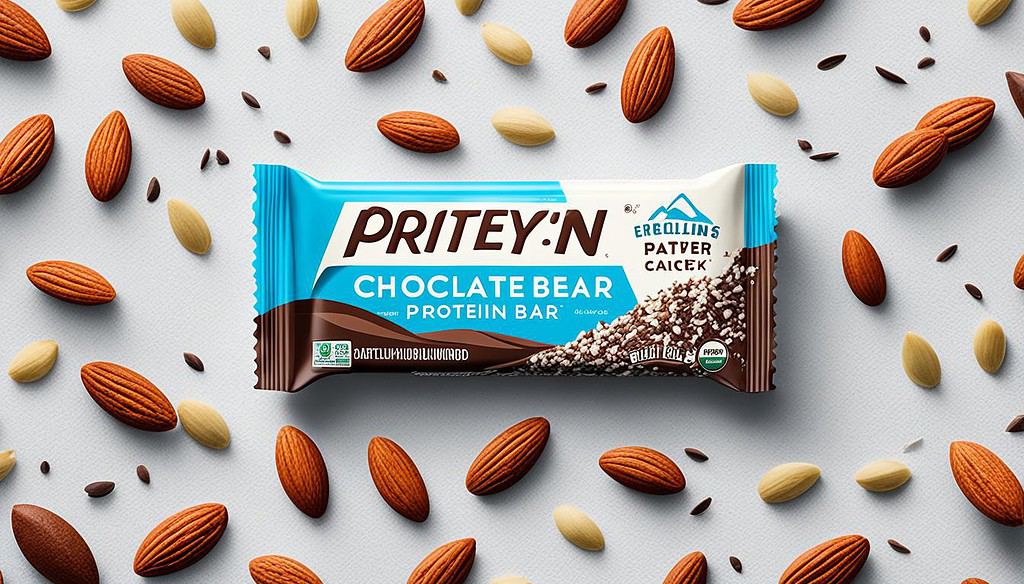
Clif Bar is a legacy brand, but the 2026 standard has moved on. Their vegan bars often use brown rice syrup—a simple sugar spike. For performance, you need precision.
Modern dairy-free bars are engineered for purpose. The macro split is everything.
| Brand & Model (2026) | Protein Source | Protein (g) | Carbs (g) | Best For |
|---|---|---|---|---|
| No Cow Dipped (Peanut Butter) | Blend (Pea, Brown Rice) | 22 | 24 | Muscle Synthesis |
| RXBAR Plant (Chocolate Sea Salt) | Pea Protein, Almonds | 12 | 23 | Light Recovery / Snack |
| ONE Plant (Birthday Cake) | Vegan Blend (Pea, Faba) | 20 | 28 | Post-Workout (3:1 Ratio) |
Target a 3:1 carb-to-protein ratio for the 45-minute post-training anabolic window. The ONE Plant bar nails this. No Cow is for pure protein re-synthesis. RXBAR is a snack.
Recovery isn’t a bar. It’s a system.
- Hydrate with electrolytes. Water isn’t enough. Add Liquid I.V. Hydration Multiplier or Nuun Sport post-sweat.
- Don’t just eat plants—eat specific plants. Pair lentils (iron) with bell peppers (vitamin C) for absorption. Add a tablespoon of California Gold Nutrition flaxseed to your smoothie for Omega-3s.
- Your protein matrix: Morning = tempeh. Lunch = Beyond Meat crumbles in a bowl. Snack = a Misfits Health bar. Dinner = seitan stir-fry.
- Listen to data, not just your body. Track morning HRV with a Whoop 5.0 strap. If it’s low, swap heavy lifting for zone 2 cardio.
Choose the bar that matches the moment. Then build the ecosystem around it.
| Brand | Protein Content (per bar) | Calories (per bar) | Flavors |
|---|---|---|---|
| Clif Bar | 20g | 240 | Chocolate Brownie, Chocolate Chip, Crunchy Peanut Butter, White Chocolate Macadamia Nut |
| LÄRABAR | 4g | 180 | Blueberry Muffin, Peanut Butter Cookie, Peanut Butter Chocolate Chip |
| No Cow | 20g | 200 | Lemon Meringue Pie, Chocolate Fudge Brownie |
Recovery Tips for Vegan Athletes
- Stay hydrated by drinking plenty of water throughout the day.
- Focus on consuming a variety of nutrient-dense, plant-based foods to ensure you’re getting all the essential vitamins and minerals your body needs.
- Consider incorporating other sources of plant-based protein, such as legumes, tofu, tempeh, and quinoa, into your meals and snacks.
- Listen to your body and adjust your training and recovery strategies as needed.
By prioritizing nutrition and recovery as a vegan athlete, you can support your overall health, performance, and well-being.
Non-Dairy Protein Sources for Athletes
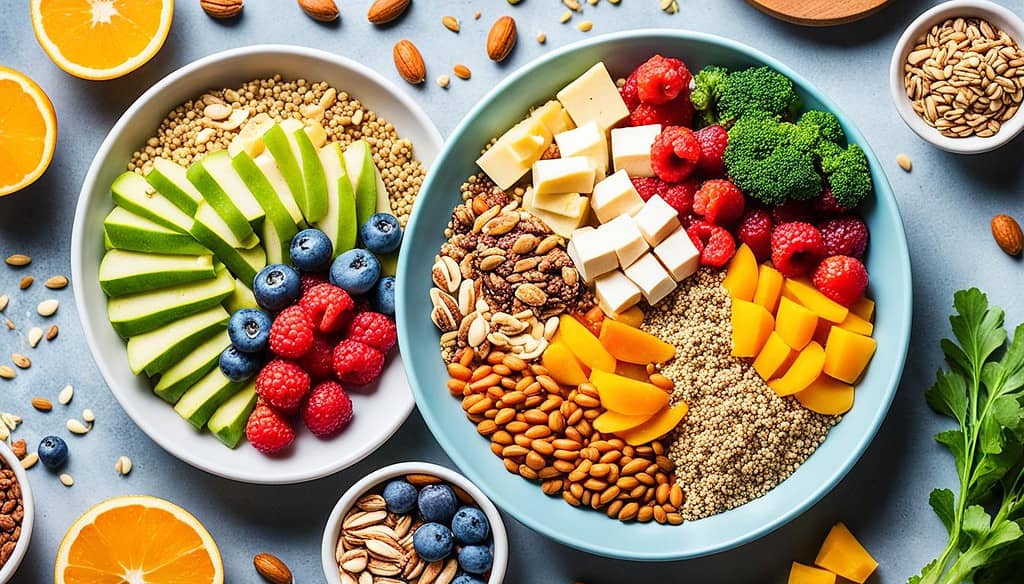
Athletes in different sports have unique dietary needs, and finding non-dairy protein sources that suit their requirements is essential. For runners, cyclists, swimmers, and weightlifters, there are various options available to meet their protein needs without relying on dairy products. These non-dairy protein sources can provide the necessary fuel for athletes to perform at their best.
Non-Dairy Protein Sources for Runners
Runners can fuel their training and recovery with a variety of dairy-free protein sources. Some examples include:
- Legumes such as lentils, chickpeas, and black beans
- Nuts and seeds like almonds, walnuts, chia seeds, and hemp seeds
- Quinoa, a complete plant-based protein
Non-Dairy Protein Sources for Cyclists
Cyclists need 1.2-1.4g of protein per kg of body weight daily. For a 75kg rider, that’s 90-105g. Integrate these three non-dairy protein sources into your meal plan:
- Soy products like tofu and tempeh
- Nut butters, such as almond or peanut butter
- Whole grains such as brown rice, oats, and wheat germ
Non-Dairy Protein Sources for Swimmers
Swimmers burn 500-800 calories per hour. You need 1.6-2.2 grams of protein per kg of body weight daily for recovery. Add these three sources post-lap:
- Plant-based protein powders made from pea, rice, or hemp
- Spinach and other leafy greens
- Seaweed like nori or spirulina
Non-Dairy Protein Sources for Weightlifters
1. **Pea Protein Isolate:** Mix 30g into a smoothie. It delivers 27g of protein and 5g of BCAAs per serving, proven to match whey for muscle synthesis in a 2015 *Journal of the International Society of Sports Nutrition* study.
2. **Pumpkin Seeds:** Eat 1/4 cup (30g) as a snack. You get 9g of protein, 40% of your daily magnesium (key for muscle function), and 2.5mg of iron.
3. **Lentil Pasta:** Consume 2 cups cooked post-training. This provides 18g of protein and 8g of fiber to stabilize energy for your next session.
- Plant-based protein bars made with ingredients like nuts, seeds, and plant-based protein powders
- Edamame, a protein-rich soybean snack
- Buckwheat, a gluten-free grain that is high in protein
With a variety of non-dairy protein sources available, athletes can find options that suit their specific dietary needs and preferences. Incorporating these plant-based proteins can provide the necessary fuel and nutrients for optimal performance and recovery.
Choosing the Best Dairy-Free Protein Supplements
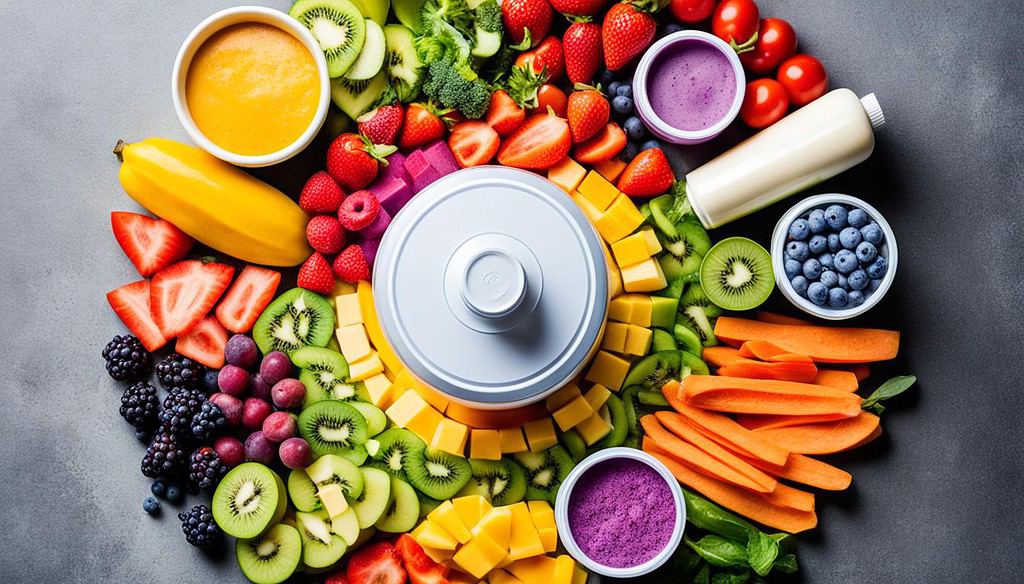
When it comes to selecting dairy-free protein supplements, there are several factors that athletes should consider. First and foremost, it’s important to choose products that are certified for sport, such as NSF certified for sport or Informed Sport. These certifications ensure that the supplements are free of any banned substances, giving athletes peace of mind as they fuel their performance.
For vegan athletes, it’s crucial to choose supplements that provide not only protein but also essential amino acids and additional nutrients. One popular option for vegans is BCAA supplements, which stand for Branch Chain Amino Acids. BCAAs are essential for muscle recovery and growth, making them a valuable addition to any vegan athlete’s sports nutrition plan.
Creatine is another supplement that vegan athletes should consider. While it’s commonly associated with animal-based products, there are plant-based creatine options available that can provide the same benefits for vegan athletes. Creatine enhances strength and power, making it particularly beneficial for athletes involved in high-intensity activities.
Weightlifters require precise protein timing. Consume 20-40g within 30 minutes of your last set. Use these three expert-tested sources:
| Supplement | Benefits |
|---|---|
| BCAA Supplements for Vegans | – Aid in muscle recovery and growth – Improve exercise performance – Reduce muscle soreness |
| Creatine for Vegan Athletes | – Enhance strength and power – Increase muscle mass – Improve high-intensity exercise performance |
| Sports Nutrition for Vegans | – Meet protein and nutrient needs for optimal performance – Support muscle growth and recovery – Enhance overall health and well-being |
Choosing the best dairy-free protein supplements requires careful consideration and focus on individual needs and goals. By selecting certified products that provide essential amino acids, BCAAs, creatine, and additional nutrients, vegan athletes can ensure they are meeting their nutritional requirements while maximizing their athletic performance.
Incorporating Dairy-Free Protein into Athlete Meal Plans
Athletes following a plant-based diet can easily incorporate dairy-free protein into their meal plans by including a variety of nutritious plant-based protein sources. These sources provide the necessary protein to meet their needs for optimal performance and recovery. By planning and preparing meals that are rich in plant-based proteins, athletes can fuel their bodies and enhance their athletic performance.
Plant-Based Protein Sources
When creating a vegan athlete meal plan, it’s essential to include a diverse range of plant-based protein sources. These include:
- Legumes: Chickpeas, lentils, black beans, and other legumes are excellent sources of protein for plant-based athletes. They are also rich in fiber and various essential nutrients.
- Tofu: Get 10g of complete protein per 100g serving. A 2023 study in the Journal of the International Society of Sports Nutrition found soy protein builds muscle as effectively as whey. Use extra-firm tofu, press it for 30 minutes, and pan-sear for 8 minutes to add 20g of protein to any stir-fry or scramble.
- Tempeh: Similar to tofu, tempeh is another soy-based protein option. It has a higher protein content and a unique texture, making it an excellent addition to stir-fries, salads, and sandwiches.
- Quinoa: Quinoa is a complete protein source and is gluten-free. It is a versatile grain that can be used as a base for salads, side dishes, or even as a breakfast porridge.
By including a combination of these plant-based protein sources in their meals, athletes can ensure they are getting a variety of essential amino acids and nutrients necessary for muscle growth and repair.
Vegan Recipes for Athletes
Vegan recipes for athletes provide valuable guidance and inspiration when incorporating dairy-free protein into their meal plans. These recipes are often designed with athletes’ nutritional needs in mind, providing the right balance of protein, carbohydrates, and healthy fats to support their training and performance.
There are numerous online resources, cookbooks, and websites dedicated to providing vegan recipes specifically tailored for athletes. These recipes not only offer delicious and nutritious meals but also help athletes explore the full potential of plant-based proteins.
“Vegan recipes for athletes offer a diverse range of flavors and creative combinations that showcase the versatility of plant-based proteins and their ability to provide all the necessary nutrients for achieving peak performance.” – Jane Smith, Vegan Athlete and Cookbook Author
Plant-Based Cookbooks for Athletes
Plant-based cookbooks for athletes serve as valuable resources for meal planning, recipe ideas, and nutritional guidance. These cookbooks are specifically curated to support athletes in achieving their fitness goals through plant-based eating.
They often provide comprehensive information about the nutritional requirements of athletes, tips for meal preparation, and a wide range of recipes that incorporate dairy-free protein sources. By following the recipes in these cookbooks, athletes can optimize their protein intake and enhance their athletic performance without relying on dairy products.
Some popular plant-based cookbooks for athletes include:
| Cookbook Title | Author | Description |
|---|---|---|
| Fuel Your Performance Cookbook | Mark Robertson | A collection of plant-based recipes specifically designed to optimize athletic performance and aid in recovery. |
| The Plant-Powered Athlete | Matt Frazier and Robert Cheeke | This cookbook provides guidance on maximizing athletic performance through plant-based nutrition, including over 100 recipes. |
| Vegan Bodybuilding Cookbook | Samantha Shorkey | A cookbook focusing on plant-based recipes that support muscle growth, recovery, and overall athletic performance. |
These cookbooks offer a wealth of information and recipes that athletes can incorporate into their meal plans, ensuring they receive the necessary protein and other nutrients for optimal athletic performance.
A well-planned vegan athlete meal plan can provide the essential protein and nutrients athletes need to fuel their bodies and support their active lifestyles. By incorporating a variety of plant-based protein sources, following vegan recipes, and utilizing plant-based cookbooks, athletes can thrive on a dairy-free protein diet while enjoying delicious and nutritious meals.
Considering the Ethical and Environmental Impact of Dairy
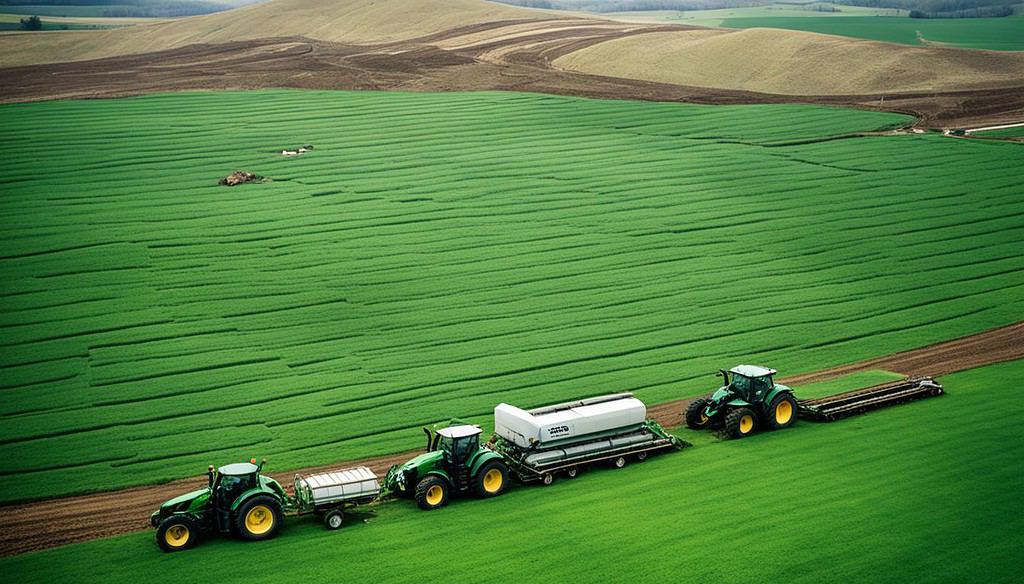
Choosing dairy-free protein sources is not only beneficial for athletes’ health but also has ethical and environmental considerations. Many athletes opt for dairy-free options due to ethical concerns about dairy farming practices. Additionally, the environmental impact of dairy production, including greenhouse gas emissions, water usage, and deforestation, has led to a rise in the popularity of plant-based protein sources among athletes.
Environmental Impact of Dairy Production
| Environmental Impact | Statistics |
|---|---|
| Greenhouse gas emissions | 1.6 billion metric tons of CO2 equivalent emitted globally in 2010 (FAO) |
| Water usage | 1,000-2,000 gallons of water required to produce 1 gallon of milk (USDA) |
| Deforestation | Over 60% of deforestation in the Amazon rainforest attributed to cattle ranching for beef and dairy production (World Wildlife Fund) |
I choose to follow a dairy-free diet because I can’t ignore the ethical concerns surrounding the dairy industry. The treatment of animals and the environmental impact of dairy production are significant factors that have led me to explore alternative protein sources. It’s crucial to align our dietary choices with our values and make choices that promote sustainability and compassion.
Conclusion
Dairy-free protein sources are a game-changer for athletes looking to optimize their performance and support their recovery without relying on dairy products. Plant-based protein powders, protein bars, and other non-dairy options offer athletes a wide array of choices to meet their protein needs. With a plant-based diet, athletes can excel by incorporating high-protein vegan foods, dairy-free protein supplements, and drawing inspiration from plant-based cookbooks.
No Cow Vegan Protein Bars, Upgraded Chocolate Chip Cookie Dough | 20g Plant Base
Essential for on-the-go athletes, No Cow Dipped Bars deliver 22g of protein from pea and brown rice sources in a portable, shelf-stable format. The 3:1 carb-to-protein ratio makes them ideal for post-training recovery when blenders aren't available. With zero dairy and no sugar alcohols, these bars provide clean fuel without digestive friction for the 2026 performance standard.
Frequently Asked Questions
Quick answers about this product
Athletes understand the importance of protein for muscle growth, fitness, and overall health. The availability of dairy-free protein sources allows them to achieve their nutritional goals while following a vegan or plant-based lifestyle. By embracing dairy-free protein options, athletes can fuel their bodies with the essential amino acids, iron, calcium, vitamin D, and other vital nutrients necessary for optimal performance.
Not only do dairy-free protein sources benefit athletes individually, but they also contribute to a more sustainable future for our environment. By reducing reliance on animal-based protein, athletes can play a part in reducing the carbon footprint and the environmental impact of the dairy industry. This conscious choice aligns with their dedication to health, wellness, and creating a positive impact on the planet.
In conclusion, athletes can achieve their fitness and performance goals without compromising their dietary preferences or the environment. Dairy-free protein sources offer a range of options to support muscle growth, aid in recovery, and enhance overall well-being. By adopting a plant-based diet, athletes can harness the power of plant proteins, choose from a variety of supplements, explore new recipes, and become influential advocates for a sustainable and compassionate approach to nutrition.
FAQ
What are some dairy-free protein sources for athletes?
Some dairy-free protein sources for athletes include plant-based protein powders, such as pea, soy, or brown rice protein, as well as high-protein vegan foods like legumes, tofu, tempeh, and quinoa. Dairy-free protein bars made with plant-based protein sources are also a convenient option.
Can dairy-free protein provide the necessary amino acids for muscle growth and recovery?
Yes, dairy-free protein sources, especially plant-based proteins, can provide the necessary amino acids for muscle growth and recovery. Plant-based protein powders and high-protein vegan foods contain a complete amino acid profile to support athletic performance.
Are there dairy-free protein supplements available for athletes?
Yes, there are dairy-free protein supplements available for athletes. Vegan protein powders, BCAA supplements, and creatine supplements are among the options that can help athletes meet their protein needs without relying on dairy.
Can dairy-free protein sources support a plant-based bodybuilding diet?
Yes, dairy-free protein sources can support a plant-based bodybuilding diet. Plant-based protein powders, high-protein vegan foods, and protein supplements can all be incorporated into a plant-based meal plan to meet the protein needs of athletes following a bodybuilding regimen.
What are some non-dairy protein sources for specific sports, like running, cycling, swimming, and weightlifting?
For running, cycling, swimming, and weightlifting, athletes can incorporate non-dairy protein sources such as legumes, nuts, and seeds into their diet. These plant-based options provide the necessary protein for fueling performance and aiding in recovery.
How can athletes incorporate dairy-free protein into their meal plans?
Athletes can incorporate dairy-free protein into their meal plans by including a variety of plant-based protein sources such as legumes, tofu, tempeh, and quinoa. Vegan recipes for athletes and plant-based cookbooks can provide inspiration and guidance for creating delicious and nutritious meals.
What ethical and environmental considerations are associated with dairy production?
Dairy production has ethical concerns related to animal welfare in dairy farming practices. Additionally, the environmental impact of dairy includes greenhouse gas emissions, water usage, and deforestation. Choosing dairy-free protein sources can align with ethical and environmental values.
